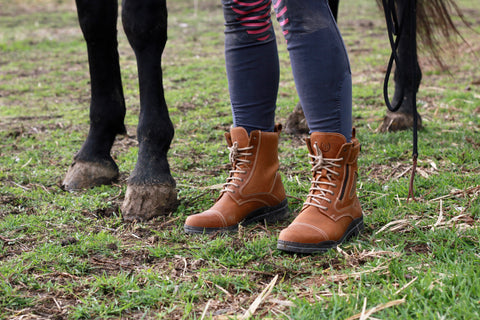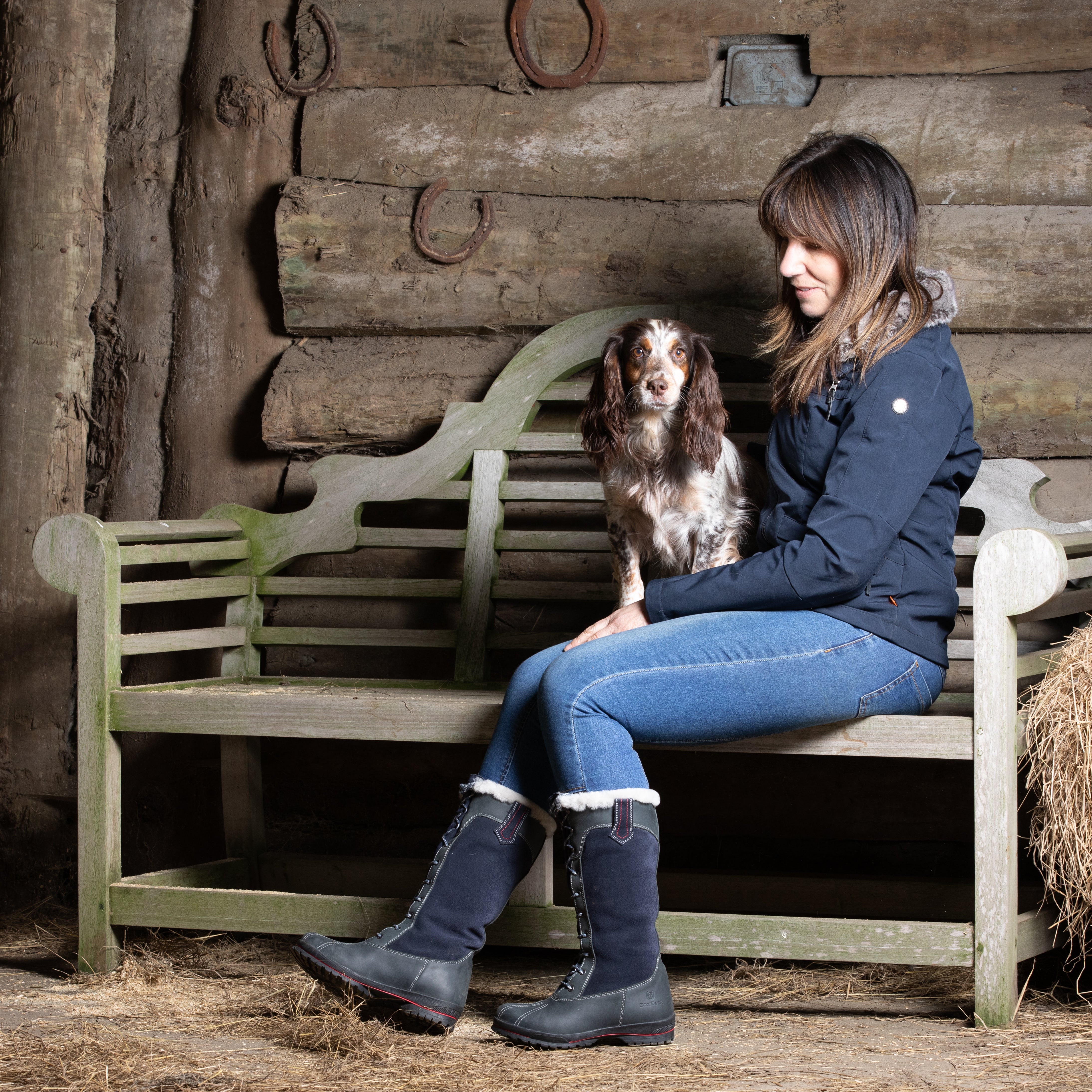Vegan leather through the years has gone through a range of names most commonly called synthetic leather or artificial leather. Essentially, vegan leather is made out of polyvinyl chloride or polyurethane - Plastic.
This is why many people have generally used another name for vegan leather, calling it “Pleather”. Now more than ever, people are looking to vegan leather as a green alternative to its natural leather counterparts, but for country and equestrian uses is this possible?
Is Vegan Leather durable and suitable for country and riding boots?
Comparing vegan leather to genuine leather:
- Quality- It is worth noting that vegan leather is most frequently a lot thinner than normal or traditional leather, making the lifespan and durability poorer. This allows the riding and country boots to wear down much easier.
- Durability- vegan leather is much less durable than ordinary or traditional leather due to the below points:
- Porousness- While traditional leather has pores, allowing it to breathe, vegan leather that is PVC based does not have any pores. As a result of this sweat easily accumulates around vegan leather, making it lose its visual appeal much earlier than normal leather.
- Maintenance- Natural leather can be conditioned and repaired aesthetically however synthetic/ vegan leather cannot be maintained and conditioned in the same way prolonging the condition and lifespan of the boots.
- Waterproof?- Depending on the structure of certain types of vegan leather, it may be waterproof as a lot of plastics are. If vinyl is used in the manufacturing process, the padding beneath the vinyl, along with the multiple and varying amounts of additives used as stretchers can break down. So even though your leather may not be ruined by adding water, it is still much safer to avoid getting vegan leather too wet.
Is Vegan Leather Good for the Environment?
The best Vegan leather to use on footwear and boots is plastic based which does have the benefits in terms of the avoidance of using animals in the fashion industry however, there is a catch.
It is not exactly a perfect material in terms of environmentalism. This is because the production of artificial leather requires a plasticizer called a phthalate to make it soft and flexible enough to work with as a 'leather' which cannot break down naturally like natural leather.
Generally an environmental risk still comes from the considerable amount of petroleum and energy needed to make this material, making it dependent on fossil fuels. On top of all of that, the production process of vegan leather produces dioxins which are toxic to both humans and animals.
Vegan leather does not decompose in a landfill normally. It can easily release certain dangerous chemicals in both the soil and water.

Non-PVC based Vegan leather
Because of the many environmental risks of PVC based vegan leather, manufacturers have started to turn towards other options, Polyurethane (still plastic based).
Polyurethane is a better choice for vegan leather in terms of environmental risk of manufacturing process however this material has slightly poorer quality and durability and Polyurethane is not biodegradable and has a much shorter shelf life than traditional leather or even PVC products.
By taking all of this into consideration it is important to understand that the absence of animal cruelty is only one part of the equation of the environmental aspect of vegan leather.
Pinatex There have been new cutting-edge technologies that have made vegan leather from other plant based materials. A recent trend of vegan leather known as “Pinatex” makes leather from wasted pineapple leaves or there is cork or kelp based alternatives, However, this type of Vegan leather is sometimes deemed harder to produce and very expensive so the majority is still used making polyvinyl chloride or polyurethane. Pinatex is also very poor to use when in conjunction with animals, out walking the dog or around horses as oils and acids (urine, farm/ yard waste) will break them down very fast.

The impact on the specific type of leather chosen also needs to take in to account the manufacturing process, the way it’s put into the fabric and the quality of the supply to makeup the overall environmental standpoint.
This is exactly why the question “what is vegan leather?” can be a complicated one with an even more complicated answer.
Our Authentic leather pledge.
All bareback footwear boots are made in Portugal and the sourcing of our leather is all within Europe, abiding by EU laws and regulations on animal welfare as well as chemical use and production methods. The EU leather tanning industry uses hides and skins (by-products from the meat and dairy industry) that would otherwise be disposed of by being sent to landfills or incinerated.The short answer?



Leave a comment